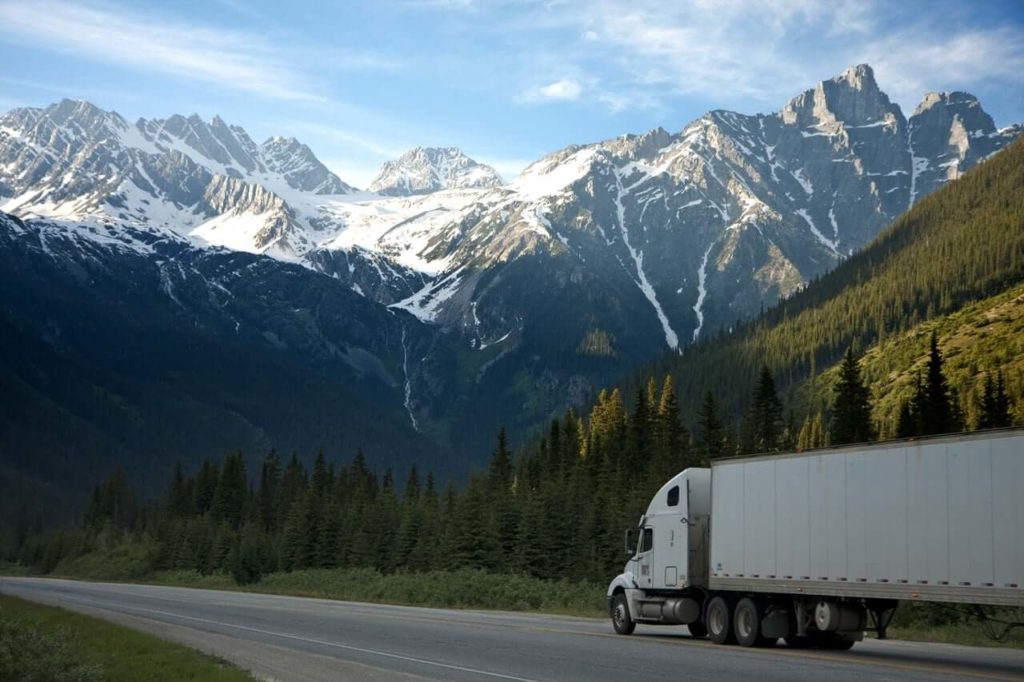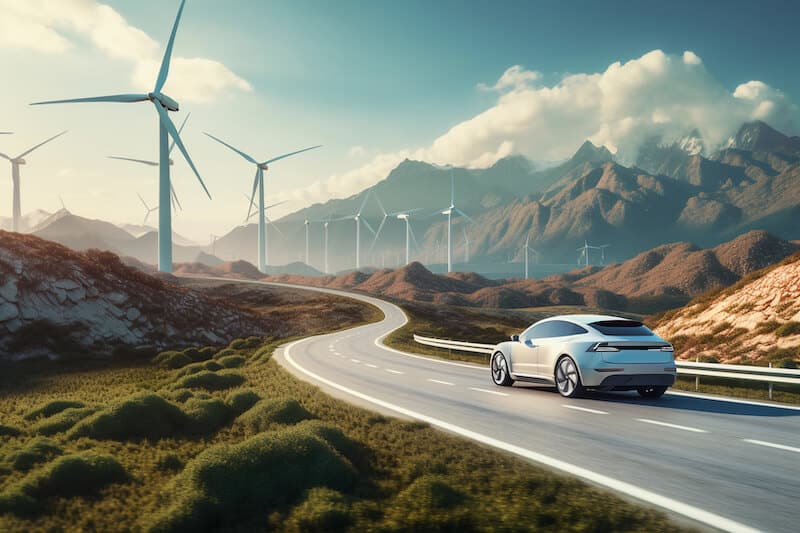Zero-Emission Vehicle Driving Towards Sustainable Infrastructure

The global population is in the midst of a climate crisis, and as we progress towards a sustainable future, the logistics industry represents one of the key sectors that can impact real change in the climate-neutral world. Global efforts are being made to achieve the goal of net-zero emissions, and the age of zero-emission vehicle is getting closer than you might think.
Why the Zero-Emission Vehicle is so Important
The logistics transportation sector accounts for approximately one-quarter of global emissions. However, there is a need for transport to provide businesses with the tools and materials needed to progress toward a zero-emissions future. Citizens and governments are continuously looking for sustainable ways to alleviate this issue.
The zero-emission vehicle industry promotes climate-positive actions through carbon avoidance, mitigating greenhouse gas emissions. These vehicles contain climate-friendly technologies. They produce far less air pollutants than gasoline or diesel-powered vehicles. In just one year, an EV emits 1.5 million grams less CO2 than a traditional one (on average). Furthermore, the electric vehicle market share continues to grow exponentially. By 2028, there will be an estimated 17.07 million EVs on the road, compared to 10.65 million in 2023 (60.4% increase).
These projections are ambitious. However, governments, environmental organizations, and environmentally conscious corporations want a sharper increase. This is mainly due to the realistic possibility of falling short of these targets. They’re working hard to transform infrastructure for a zero-emission vehicle future.
Factors Affecting the Transition to Zero-Emission Vehicles
Under the Paris Agreement, government bodies have agreed to maintain global warming to between 1.5°C and 2°C above preindustrial levels. To meet the targets, participating countries submit their national climate action plans. Subsequently, we’re now seeing a transformation in infrastructure that’s leading us to a zero-emission vehicle future. Here are the main factors driving change.
Government Targets
Government NDCs contain targets and pathways to reach zero-emission goals. The UK in particular has a clear plan to reach zero-emissions by 2035. They plan to be 80% of the way there by 2030. The UK is set to stay on track by rolling out hundreds of thousands of charge points and phasing out petrol and diesel engine vehicles.
By 2030, the government plans to have 300,000 charge points installed throughout the country. By 2035, all new cars must emit zero-emissions at the tailpipe.

Rapid Progress in the EV Market
Electric vehicles have improved significantly in recent years. They perform well and you can find models that rival the speed of most gas-powered sports cards. To boot, they’re efficient, require less maintenance, and make little to no operational noise.
While there are some drawbacks, such as vehicle range and the need to charge, EVs are suitable for a large percentage of drivers. When it comes to buying, maintaining, and charging your EV which is now easier than ever.
Royale International is renowned for providing Time Critical courier solutions, particularly in high-stakes sectors like automotive manufacturing. The construction of EV’s involves numerous materials classified as hazardous during transit, necessitating reliable and Time Critical courier services. This ensures the smooth progress of EV manufacturers.
Comprehensive Infrastructure Deployment
Most EV owners opt for the most practical and economical way to charge their vehicles. They plug them in at home overnight or charge them at their workplace. However, there’s still a need for major infrastructural development of public charging stations.
The infrastructure for public charging networks is being rolled out steadily. Over the next five to ten years, you will see even further development of public and rapid charge points.
Time Critical solutions are essential to ensure national authorities can get the necessary infrastructure in place to achieve their goals. For example, our Just-in-Time services transport goods for a precise time. This minimises the need to keep important materials in storage and helps maintain a smooth supply chain.
Increase in Public Demand
The demand for EVs has been rising at a much faster rate than previously anticipated. This is due to financial incentives, environmentally conscious consumers, and high-performance EVs.
In 2023, EV sales represent 18% of total auto sales worldwide, which is a 5% increase from the previous year. The zero emission car sector looks on track to dominate the marketplace by 2030.
Doing Our Part for a Sustainable Future
Of course, there are structural and financial obstacles to get through before zero-emission vehicles are the norm. However, the collective efforts to reduce environmental impact speak volumes. The public has the desire to improve life on our planet.
At Royale International, we are dedicated to reducing unnecessary CO2 emissions. Our approach includes efficiently transporting EV automotive parts across the globe and utilising space on commercial passenger flights to minimise additional pollution. Furthermore, we offer Next Flight Out transportation services through our alliances with airlines to reduce carbon output.
In partnership with Ecologi, we reinforce our carbon avoidance initiatives by funding the planting of 4,090 trees and avoiding 345.03 tCO2e since 2022, click here to learn more about our progress.
As a leading logistics company, we understand that our role goes beyond transport. We must also do our part in facilitating the innovation of EV technology as we move into the no-emissions era. For more information on our reliable logistics services, check out our website. Or contact us today: info@royaleinternational.com.


